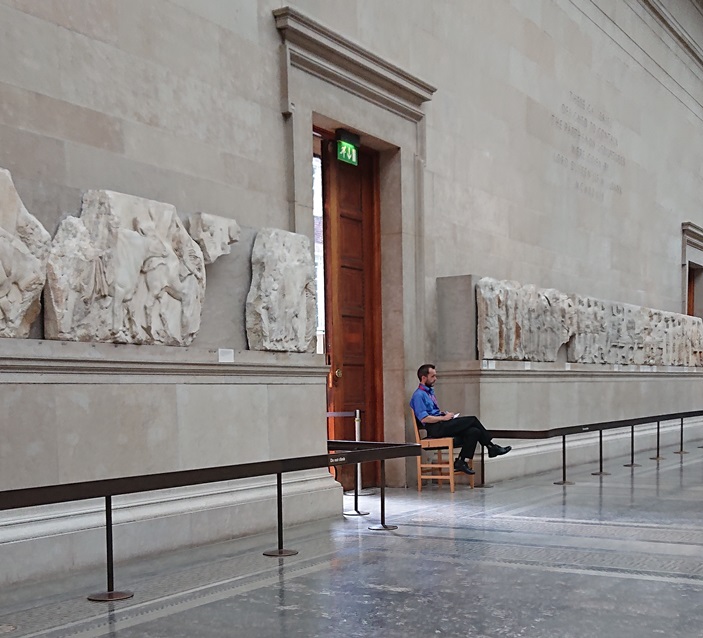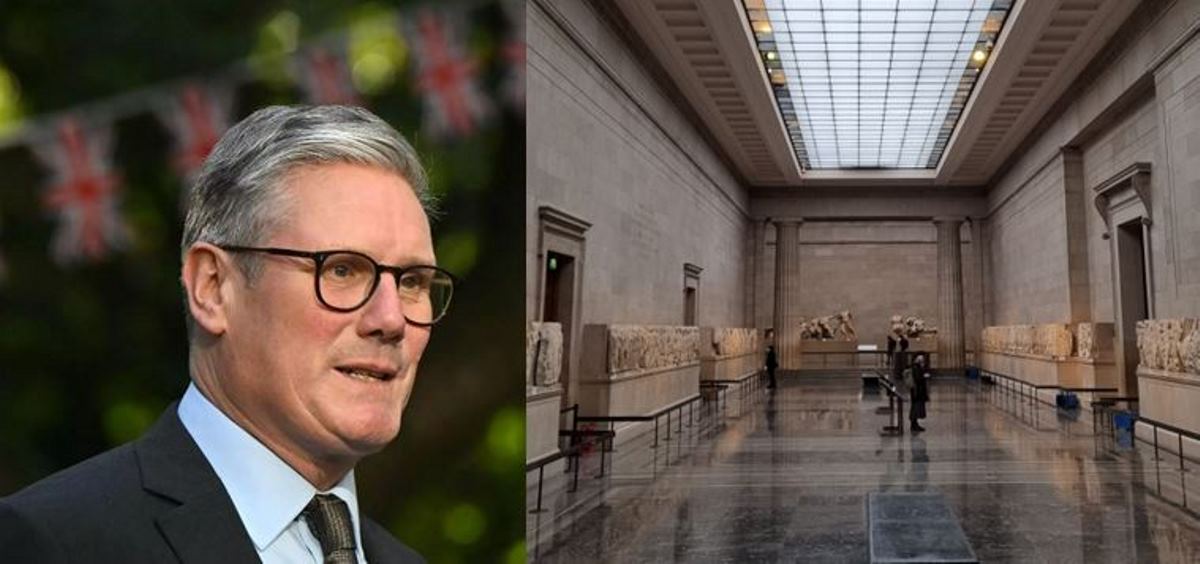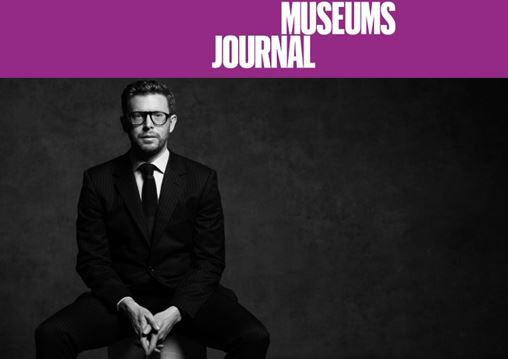

Parthenon Project: the Reunification of the Sculptures along the lines of the Fagan fragment
Article by Nikolas Zois for Kathimerini (this article was published in Greek, we apologies for any errors made in translating the original and the article follows an event organised in Athens on Monday 30 September 2024 by the Parthenon Project)
Constitutional expert Nikos Alivizatos spoke about important legal aspects of the Parthenon Project's "mutually beneficial solution for the reunification of the Parthenon Sculptures", which includes the recognition that on the issue of ownership the Greek and British sides "agree to disagree", at an event held in Athens yesterday.
Referring to the "Fagan fragment", which had been returned to Greece as a "deposit" from the A. Salinas Museum (and about which he was informed by the Minister of Culture, Lina Mendoni), Mr. Alivizatos, a member of the advisory board of the Parthenon Project, noted that the term should be translated as "legacy" in Greek. "But it is not just a word, but a concept included in our civil code, Article 822, and comes from Roman law," said the constitutionalist, who stressed that the one who gives something as a deposit does not need to be recognized as its owner by the one who receives it.
"In signing an agreement that defines the transaction as a 'deposit', we do not automatically recognize the depositor's status as owner, which solves many problems," Alivizatos said. "The only legal obligation that arises is to return the item when requested," he added, referring to the provisions of the relevant article. "In this way we can put ownership aside and move on."
The Minister of Foreign Affairs, George Gerapetritis, who addressed yesterday's event, referred among other things to the "constructive discussions" that have been taking place with the British Museum over the last few years, governed by sincerity and a spirit of mutual understanding. "We have come up with some concrete conditions on which we can build in order to find a strategic partnership (...) which will ultimately result in the return of the Parthenon Sculptures to their birthplace," Gerapetritis said, referring to "relative optimism" and saying it was important that with the new, supportive British Labour government, the "logistics" of a possible reunification could be discussed.
In her own greeting, which was not included in the original planning of the event, according to the official invitation, the Minister of Culture, Lina Mendoni, stated, inter alia, that "the Greek state constantly declares its sincere intention to elaborate creative solutions so that the reunification of the Parthenon Sculptures may return to their native land, and be displayed at the Acropolis Museum. In this way there would not be a gap in the collections and exhibition programme of the British Museum as Greece is offering in return temporary exhibitions and loans of prestigious antiquities, with artistic and historical importance, and value that will keep the public's interest undiminished and constant for the BM".
Yannis Lefas, founder of the Parthenon Project, summarized the main pillars of the organization's proposal (which include the creation of a Greek-British foundation with a program of scholarships, exchanges, etc.) and noted that the proposed renaming of the British Museum's Duveen Gallery to "Prince Phillip Hellenic Gallery" would pay "tribute to Prince Philip (husband of Elizabeth II) and his Greek roots".
Geoffrey Robertson, a lawyer and author of Who Owns History, recalled the British Museum's "lies" about Elgin's "permission" to detach the sculptures and "rescue" them and "legally" acquire them from the foundation, while former Labour's shadow culture secretary, Thangham Debonaire, thanked the director of the Acropolis Museum, Nikos Stampolidis, for the tour that was offered to the members of the advisory board of the Parthenon Project, and stressed on her part that the sculptures should have returned "long ago".
Asked by Kathimerini on the sidelines of the event whether the Parthenon Project has discussed with the British Museum its "mutually beneficial solution", the organization's president, Lord Vaizey, noted that George Osborne and Nicholas Cullinan, the president and new director of the foundation, will make their own proposals. "We don't know when, but they have made it known that there are talks about a deal," Lord Vaizey said. "Clearly we are discussing with them our thoughts and ideas and we are doing so in the spirit of promoting a solution. At the end of the day it will be up to the British Museum to propose theirs but of course we let them know our own thinking."





Comments powered by CComment